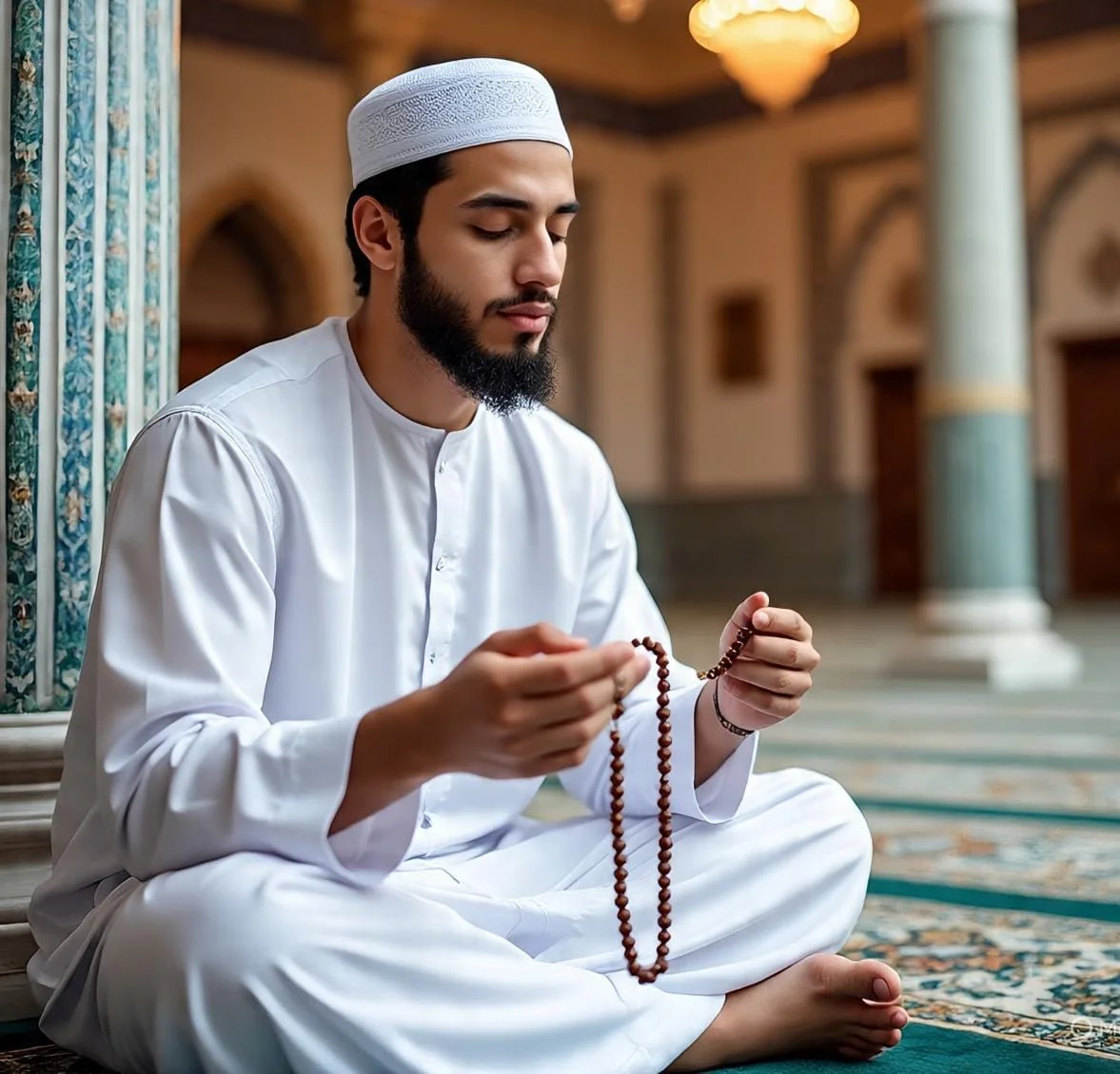
Anxious Heart? Try This 5-Minute Trick Every Day!
When your heart trembles without reason, when your mind races into shadows of what-ifs and worries, there is a sacred whisper calling you back home. It is not the voice of the world, nor the illusion of comfort found in distraction. It is the voice of your Creator inviting you to stillness, to remembrance, and to trust. Anxiety is a quiet thief; it steals your peace, your clarity, and your connection to the present. But what if the antidote is simpler than you think? What if the way to calm your anxious heart takes only five minutes each day, through a practice that reconnects you to Allah Himself?
In a world that glorifies productivity and noise, stillness feels foreign. Yet the heart was never designed to find rest in chaos. Its peace lies in remembrance. When the heart remembers Allah, it begins to breathe again. When it forgets Him, it suffocates under the weight of worldly fears. Anxiety, in its essence, is the cry of a soul that has wandered too far from its Source. But every cry is heard, and every lost soul can return.
"Verily, in the remembrance of Allah do hearts find rest." (Surah Ar-Ra’d, 13:28)
This verse is not poetic metaphor. It is divine psychology. The Creator of the heart has revealed the mechanism of its healing: remembrance. The Arabic word tatma’innu signifies a deep tranquility, not just the absence of fear but the presence of serenity. Through dhikr, the constant remembrance of Allah, the heart returns to its natural state of calm. Just as a seed needs water to grow, the heart needs remembrance to live.
The Five-Minute Healing Practice
Set aside five minutes each day. That is all it takes. No grand ritual, no complex routine. Just you, your breath, and your awareness of the One who sustains your every heartbeat. Find a quiet place, sit comfortably, and close your eyes. Take three deep breaths. With each inhale, whisper gratitude for the air that fills your lungs. With each exhale, release your burdens into the care of Allah.
Now begin with simple words — Allāhu Akbar (Allah is the Greatest), Alhamdulillāh (All praise is due to Allah), and Astaghfirullāh (I seek forgiveness from Allah). Say them slowly, gently. Let the rhythm of these words match the rhythm of your breath. With every repetition, imagine a light unfolding in your chest, pushing away the darkness of anxiety. Feel how your heart starts to soften, how your shoulders relax, how your spirit realigns.
In those moments, your worries are no longer yours to carry. You are surrendering them to the One who never sleeps, who never forgets, who never abandons. The Prophet Muhammad once said:
"Be mindful of Allah, and He will protect you." (Sunan al-Tirmidhi, 2516)
To be mindful of Allah means to live with awareness of His nearness. It is to remember that your heart beats because He wills it to beat. That your anxiety, though painful, is not a punishment but a call — a divine reminder that you were never meant to handle life alone. Through this awareness, anxiety transforms from a burden into a bridge. It leads you back to reliance, back to humility, back to love.
When Faith Meets Stillness
Many try to escape anxiety through distractions — endless scrolling, constant noise, or artificial comfort. Yet peace does not come from avoiding pain; it comes from transforming it. The believer’s approach is different: we face our unease through remembrance, through trust, through surrender. Each moment of dhikr is an act of faith, a declaration that “Allah is enough for me.”
Imam Ibn al-Qayyim beautifully said, “The heart’s rest is in remembrance of Allah. If it loses this connection, it loses its joy, just as a fish dies when taken out of water.” These words reveal a profound truth: the anxious heart is not broken — it is simply homesick. It yearns for its source, for divine companionship. The cure, then, is not to suppress its cries but to guide it back to remembrance.
In this sacred stillness, you will notice subtle changes. The mind begins to slow. The chest loosens. The worries that once seemed heavy start to feel lighter. Not because the problems vanished, but because your trust grew. You are no longer fighting your anxiety alone; you are walking through it with the One who created calm itself.
The Meaning of Dhikr
The Arabic word dhikr means remembrance, but it also carries the meaning of presence. To remember Allah is not just to speak His name but to live in awareness of His mercy and power. It is to bring the divine into every breath, every action, every thought. The beauty of this five-minute practice is that it teaches the heart to remain in remembrance even after you rise from your place of stillness. Over time, remembrance becomes your default state. You walk, speak, and work with tranquility flowing quietly beneath every moment.
That is the essence of Islamic mindfulness. It is not a trend or a therapy technique, but a spiritual discipline rooted in revelation. True mindfulness is muraqabah — the awareness that Allah is watching over you, that He knows your thoughts before you speak them, that He understands your pain before you can describe it. When you live in that awareness, peace no longer depends on circumstances. It becomes an inner condition of your soul.
Take the First Step
Today, begin with five minutes. Just five minutes of remembrance, reflection, and surrender. When anxiety comes, instead of running from it, sit with it, breathe, and remember. Tell your heart, “Allah is near.” Repeat it until the words stop being theory and start becoming truth. Over time, your heart will learn to return to Him faster, more effortlessly. That is the real transformation — not the absence of fear, but the presence of faith within fear.
Do not stop here. Continue to Page 2, where we will explore how the Qur’an and science align in revealing the link between remembrance and calmness. You will discover how dhikr not only soothes your spirit but also physically heals your brain and heart. The deeper truth awaits you — keep reading.
Remember: peace is not found in escape, but in remembrance. Your five minutes with Allah can change your entire day.



